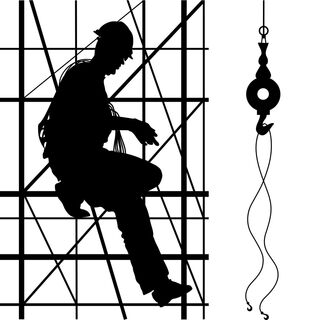Adolescence
Park the Bulldozer, Land the Helicopter, Demolish the Scaffolding
Helping your child succeed requires different approaches for different times.
Posted December 3, 2021 Reviewed by Tyler Woods
Key points
- Let teens identify and negotiate obstacles on their own.
- Let them fail, safely.
- Treat parenting teens like a managerial task.
All parents want their children to succeed and to be able to help them to succeed. For some parents, that help takes the form of entrusting their children to institutions and organizations, such as schools, sports teams, and religious affiliations. Parents from some backgrounds believe that these organizations' professionals, volunteers, and experts are best equipped to help their children achieve success in modern-day America. Other parents distrust these organizations and believe that their children can achieve success only through their intervention and management. As with all parenting decisions, there are fervent voices on both sides condemning the other side. There are no clear ways to prove or show that you are a good parent, no certainty, no badge, no single checklist. In this way, parents are like managers in a corporation, judged on the success of their teams, not on their own accomplishments. Neither parents nor managers have absolute control over the internal or external environment in which their teams operate but must use a variety of tools to help them succeed.
Bulldoze sparingly
Just as managers cannot control markets, economies, and other aspects of the external environment, parents cannot control all aspects of the environment in which their children will function. And, mostly, they shouldn't try. Learning to evaluate and navigate an obstacle-filled environment is necessary for success as an adult. Learning which battles to fight, when to concede, and when to keep one's own counsel are essential skills. Bulldozer parents are parents that clear these obstacles for their children.
Teens have autonomy and independence and will soon be living on their own. Suppose they know how to engage in conflict productively and negotiate for desired outcomes? In that case, they'll be able to deal with loud neighbors, vague instructions, and dining hall meals that they don't like. It is easy to say that we don't want our children to experience the obstacles and difficulties that we encountered as teens and young adults. Still, it is also true that those difficulties, the heartbreaks and frustrations, are what made us who we are. Experiencing obstacles and difficulties is inevitable. Parents should teach their teens how to calibrate their feelings of what really matters, just as they did when their teens were toddlers. Yes, sometimes when the cookie is divided, you don't get an equal-sized half, and sometimes you won't get the teacher you wanted. In the long run, does it matter? And what can be learned from the experience? For those with resources, bulldoze sparingly.
Land the Helicopter
A good manager has a team that continues to function when she goes on vacation. A good parent has a teen that continues to function when he isn't looking, or when the teen moves away. People are called helicopter parents when they constantly hover over their teens. Parents hover to keep their teens safe, watch for potential obstacles, and ensure that they are on the right path. Technology can make this especially easy as parents can track student performance on apps tied to school learning management systems, track location via phones, and even watch their teens while they are away via webcams. This tracking behavior may have started when today's teens were infants. Parents had radio monitors listening for any burble of noise from the crib, video monitoring in the nursery, and instant updates from caregivers, daycares, and nursery schools. Given the ease with which parents can keep an eye on things—and offer corrective advice and guidance—it is understandably hard to step away. Or, perhaps it is easy. As your teen prepares to live independently, just delete the apps and turn off the monitors. Consider not knowing where your teen is at all times, or what they are doing. Self-control is a skill and ability gained through practice and learning the consequences of failure. This isn't easy. Particularly after sharing so much together time during 2020 and 2021, it may be hard to let your teens be out of sight and out of mind. But taking your hands off the wheel strengthens your teen for independent decision-making and living.

Build and Demolish the Scaffold
One way that managers think about developing new employees is as scaffolding. As new employees are onboarded they are given increasingly difficult tasks with less and less support. For example, an employee might check in daily and have someone assigned to answer questions on a first assignment. On the next assignment, the scope might grow and check-ins might be weekly. Employees might be given lower-stakes projects for their first independent assignments. The same is true with teens. Consistently increase the difficulty of tasks and at the same time reduce support. A good example is making meals. While some teens are eager to enter the kitchen, others would be content to live on cereal if given the choice. For less culinary-inclined teens, asking them to cook an entire meal for a family holiday would be overwhelming and there would be a high cost for failure. Because of this, a parent may have a hard time stepping back and letting the teen fail. On the other hand, starting the teen with making one dish, or making a simple meal (for which ordering pizza is always a viable rescue option) lets them explore the kitchen and allows the parent to step back and allow failure. In general, it is hard for parents to let their teens fail when the stakes are high. When it is one hour before the college application needs to be submitted, it may be challenging to watch a teen procrastinate. So, as parents began to cede authority and control, start with the easier tasks.
Parents have an emotional attachment and investment in their children that managers do not have in their employees. However, thinking about parenting teens as a managerial task can be helpful. In both cases, the goal is to end up with a self-motivated, productive, and happy person. Parking the bulldozer, landing the helicopter, and demolishing the scaffolding are all parts of preparing parents and teens for college life.


